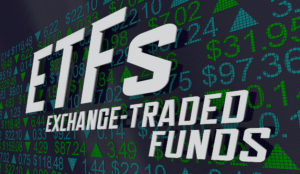By Kevin Prins, BMO ETFs
(Sponsor Content)
More and more investors are converting to Exchange Traded Funds (ETFs) over picking stocks individually. But what is it that’s so appealing? Why are more investors considering ETFs over individual stock picking? With the growth of the ETF market, you can access precise strategies that reflect how you want to invest, while at the same time reducing single security or concentration risk with strategies such as “high-dividend ETFs” “clean energy ETFs” “commodity ETFs” and “tech ETFs.”
Essentially, an ETF is a bundle of securities that tracks an index, sector, commodity, bond, or other asset, and is traded on the exchange like an individual stock. So, by buying an ETF, you end up gaining exposure to a whole basket of stocks, commodities, or bonds.
But what makes them more popular is that they are easy to use, as a single ticket solution on the exchange, just liking buying a single stock.
Most individual stock-pickers don’t add value
Consider that academics — who have conducted a lot of research on the subject of stock picking — have found that investors can reduce market risk by diversifying across securities, typically starting at 20 holdings.1
In fact, they’ve concluded that while talented stock pickers can add value, the majority do not. According to S&P Dow Jones, as of the end of December 2020, 75% of large cap fund managers underperformed the S&P 500 over a five-year basis and 60% underperformed over a one-year basis. 2
So, if stock pickers aren’t the most consistent way to generate market returns, what is?
ETFs provide exposure that captures the returns of all the securities in its targeted market. With a variety of ETFs, you can gain exposure to a diversified group of securities across industries and sectors.
This diversified exposure allows you to track entire industries that are set to see growth, like, for instance, tech ETFs and clean energy ETFs. Continue Reading…


